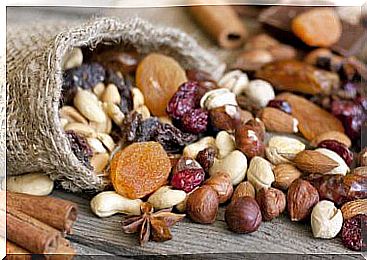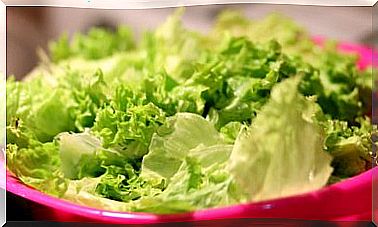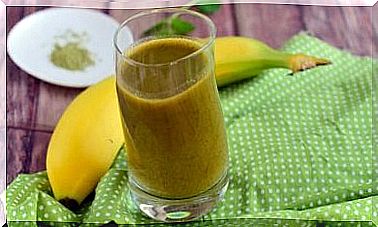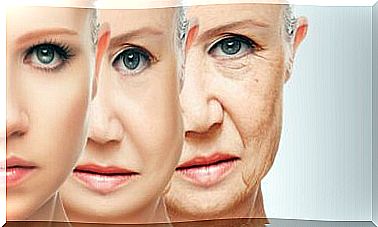The Best Foods To Reduce Bad Or LDL Cholesterol
Cholesterol, a widely known concept, is a fat-like substance found in every cell in your body. Specifically, within the human body the liver produces cholesterol, although the highest amounts are found in some foods, such as meat and some dairy products.
Actually, the body needs some cholesterol to stay healthy. What happens is that accumulating large amounts of cholesterol in the blood increases the risk of coronary artery disease. To prevent this from happening, maintaining healthy lifestyle habits, a balanced diet and making regular visits to the doctor are fundamental factors.
About bad cholesterol
There are two types of cholesterol, HDL and LDL. The two are two types of lipoproteins, that is, a combination of fat and protein. HDL and LDL have different functions.
First of all, HDL cholesterol, generally known as the “good” cholesterol stands for high-density lipoprotein in English. It is often said that it is good because it works by transporting cholesterol from different parts of the body to the liver. Later, the liver removes cholesterol.
Instead, LDL stands for low-density lipoproteins. This is the “bad” cholesterol because a high level of LDL can lead to a build-up of cholesterol in the arteries. LDL cholesterol builds up in the arteries progressively. Over time, if nothing is done to prevent the situation, blood flow may stop due to accumulated deposits in the arteries.
This can lead to an increased risk of developing heart disease or stroke. Therefore, it is essential to take preventive measures in time.
Professionals often recommend having the following cholesterol levels:
- LDL cholesterol : below 100 mg per deciliter of blood.
- HDL cholesterol : above 60 mg / dl.
- Total cholesterol: below 100 mg / dl.
Foods that help reduce bad cholesterol
It is important to keep in mind that the problems that can be triggered by having high cholesterol levels are serious. Therefore, the most advisable thing is to go to a specialist in order to be able to keep track of the situation and to be able to indicate medical treatments in case the problem worsens.
On the other hand, taking care of your diet is another key factor. As noted by health professionals, heart-healthy foods are those low in saturated and trans fats. For example, it is advisable to reduce the consumption of some meats, dairy products, chocolate, pastries, processed and fried foods.
On the other hand, it is important to increase the consumption of those foods that, in general, help us to complement a balanced diet and can also provide us with various benefits, given their nutritional contribution. Here are some of the most beneficial ones.
1. Foods rich in fiber
Foods rich in soluble fiber can help prevent bad cholesterol from the blood. This was expressed by Sergio Caja, a doctor in molecular biology from the National Center for Cardiovascular Research (CNIC) in Madrid, trained in Nutrition and Scientific Management by the Instituto de Empresa.
“The most effective foods to reduce cholesterol levels in the blood are those that have a high amount of soluble fiber and peptine because they bind to cholesterol in the intestine, favoring its elimination through the feces”, explains Sergio.
In this sense, you can incorporate a greater amount of fruits and vegetables in your meals, these are products rich in soluble fiber. Whole grains and beans also contain good amounts of fiber.
2. Nuts
Sergio Caja also explains how “it is very interesting that plant foods with a high percentage of fat have the ability to regulate the cholesterol profile as well as nuts do”.
As stated by the biologist, nuts can help reduce LDL levels by 4% if they are included in a healthy diet maintained on a regular basis. In particular, the daily consumption of a handful (about 40 grams) of roasted nuts without salt is recommended.
Among the different types of nuts include walnuts, almonds, pistachios or Macadamia nuts.

3. Omega 3 fatty acids
Lastly, omega 3 fatty acids cannot be lacking in a healthy diet. These help lower bad cholesterol and triglyceride levels in the blood. This is how the professionals from Fundación Española del Corazón explain it.
Omega 3 fatty acids are found specifically in oily fish. Therefore, it is advisable to consume two servings per week of blue fish, such as tuna, salmon, trout or mackerel among others.
In conclusion…
We can promote the control of cholesterol levels by increasing the consumption of those foods that provide good nutrients. Due to its effects on the body, maintaining a good diet helps control cholesterol, improves the elasticity of the arteries and helps reduce the risk of cardiovascular problems.
A balanced diet based on the consumption of vegetables, fish and white meat can reduce cardiovascular risk by 30%. We should prioritize the consumption of polyunsaturated fats, such as fish (rich in omega-3), poultry and nuts. In addition, we must increase the consumption of vegetables and choose olive oil as the main fat in our diet.









